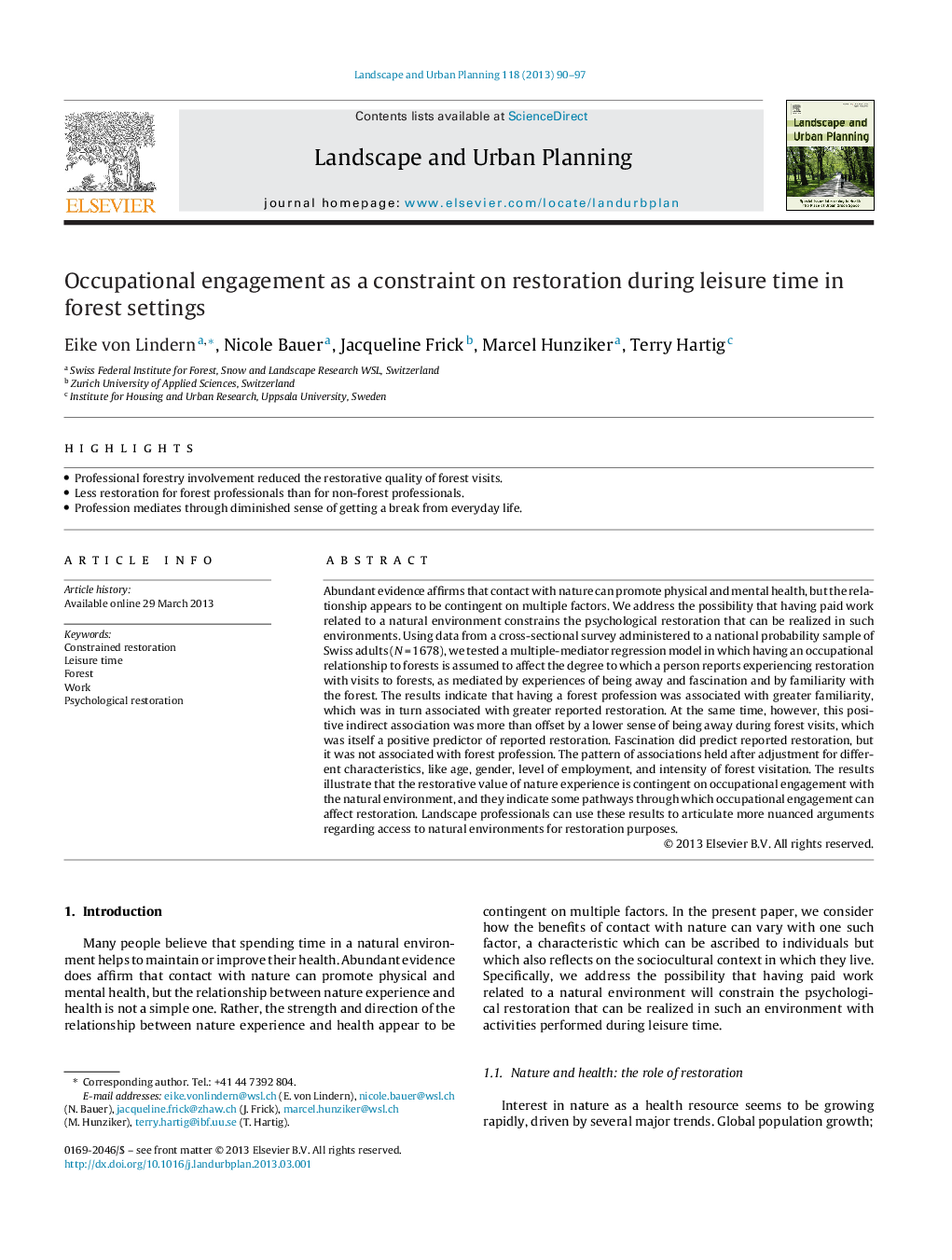| Article ID | Journal | Published Year | Pages | File Type |
|---|---|---|---|---|
| 7461914 | Landscape and Urban Planning | 2013 | 8 Pages |
Abstract
Abundant evidence affirms that contact with nature can promote physical and mental health, but the relationship appears to be contingent on multiple factors. We address the possibility that having paid work related to a natural environment constrains the psychological restoration that can be realized in such environments. Using data from a cross-sectional survey administered to a national probability sample of Swiss adults (NÂ =Â 1678), we tested a multiple-mediator regression model in which having an occupational relationship to forests is assumed to affect the degree to which a person reports experiencing restoration with visits to forests, as mediated by experiences of being away and fascination and by familiarity with the forest. The results indicate that having a forest profession was associated with greater familiarity, which was in turn associated with greater reported restoration. At the same time, however, this positive indirect association was more than offset by a lower sense of being away during forest visits, which was itself a positive predictor of reported restoration. Fascination did predict reported restoration, but it was not associated with forest profession. The pattern of associations held after adjustment for different characteristics, like age, gender, level of employment, and intensity of forest visitation. The results illustrate that the restorative value of nature experience is contingent on occupational engagement with the natural environment, and they indicate some pathways through which occupational engagement can affect restoration. Landscape professionals can use these results to articulate more nuanced arguments regarding access to natural environments for restoration purposes.
Related Topics
Life Sciences
Agricultural and Biological Sciences
Ecology, Evolution, Behavior and Systematics
Authors
Eike von Lindern, Nicole Bauer, Jacqueline Frick, Marcel Hunziker, Terry Hartig,
